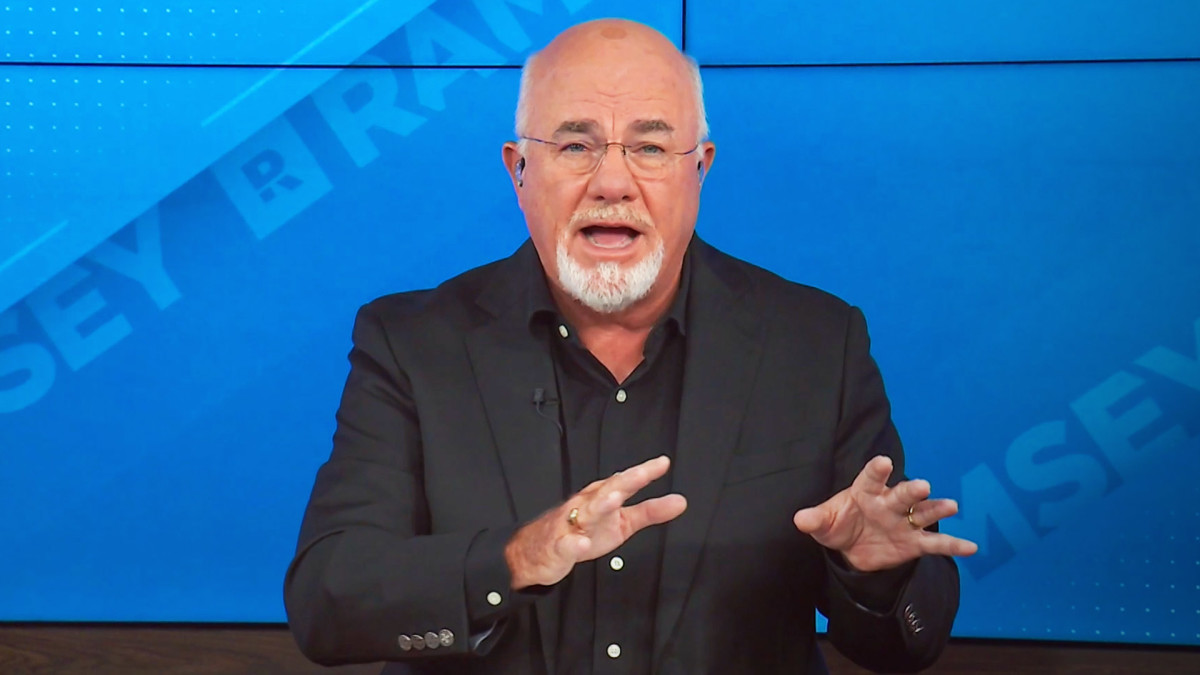
Buying a home is often seen as one step toward achieving the ‘American Dream’ and building wealth. For many consumers, becoming a homeowner is an opportunity to build equity, enjoy tax benefits, and establish financial stability.
However, it is also a significant life decision that must be thoroughly researched and planned for.
For example, determining the right mortgage term, housing budget, and location ahead of time can help set you up for financial success and avoid buyer’s remorse.
🚨Don’t miss this amazing Cyber Week Move! Get 60% off TheStreet Pro. Act now before it’s gone.😲
And having other forms of outstanding debt can make it difficult to make monthly mortgage payments while balancing competing obligations.
With these facts in mind, personal finance expert Dave Ramsey highlights the dangers of buying a home before being financially and mentally prepared.

Shutterstock
Make sure you’re debt-free before getting a mortgage
Financial advisors universally acknowledge that paying down high-risk debt is the first step to building wealth. Consumers can lose thousands of dollars on accrued interest each month, which can eat into household budgets.
While it's possible and even common for buyers to purchase a home when they still have low-interest debt, such as student loans, it’s not advisable to purchase a home with considerable high-interest credit card debt.
More on Dave Ramsey
- Dave Ramsey sounds alarm on Social Security for retired Americans
- Ramsey has blunt words on Medicare for retirees
- Finance author has a warning for people buying a home now
Ramsey highlights how debt can weigh new homeowners down.
“Paying for a house when you’re in debt is like trying to run a marathon with weights chained to your legs,” he wrote. “Making it to the finish line will be a struggle, and you’ll end up way behind on your other money goals — like retiring, traveling, or paying for your kids to go to college debt-free — because all your income will be tied up in debt payments.”
He suggests that prospective homeowners focus on paying down all debts that could prevent them from staying afloat and making strides toward other financial goals.
Being debt-free allows you to focus on saving up a 20% down payment and other hidden costs when closing on a house.
Don't go into debt to cover closing costs
Closing costs vary by state, and both buyers and sellers are subject to cover closing costs. Credit checks, appraisals, attorney fees, and insurance can add up and even put home buyers into debt by the end of the transaction.
Related: Dave Ramsey sounds alarm on Social Security for retired Americans
Typical closing costs hover between 2% and 5% of a mortgage loan; for the average U.S. home in 2024, that translates to more than $15,000. Buyers must factor these costs into their budget, as they will also be expected to cover other costs such as Homeowner's Association (HOA) fees and property taxes.
Ramsey underscores the importance of having enough saved up to cover 3-6 months of emergency savings, a 20% down payment, and enough to cover tens of thousands of dollars in closing fees.
Though building a substantial nest egg may take longer, taking on more debt to cover closing costs will increase monthly payments and make it difficult to balance other homeownership costs like housing maintenance and furnishing a new home.
Related: Veteran fund manager sees world of pain coming for stocks







